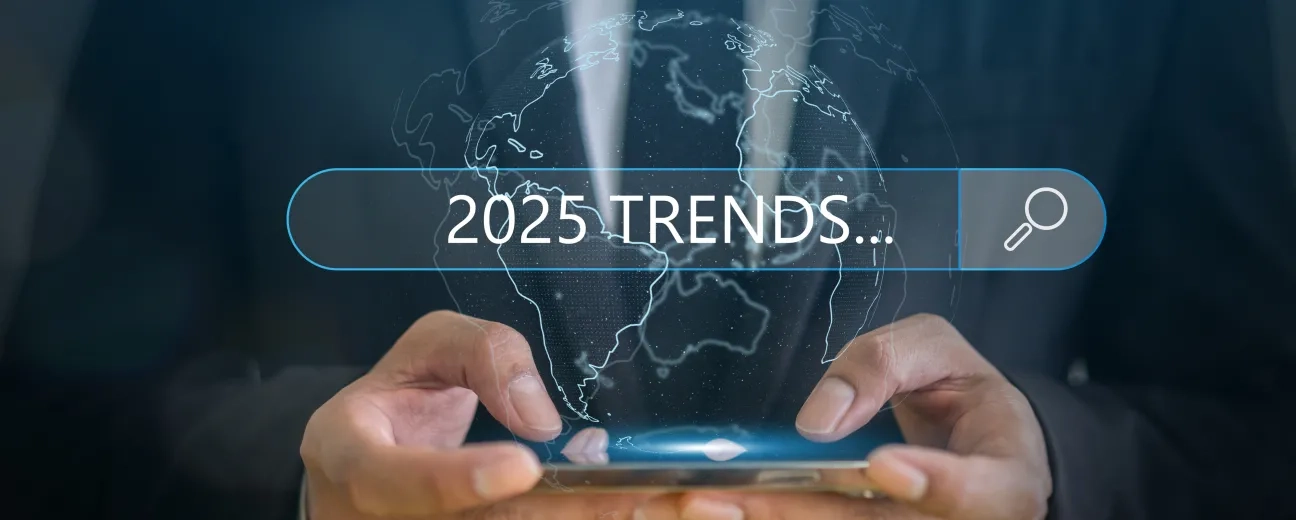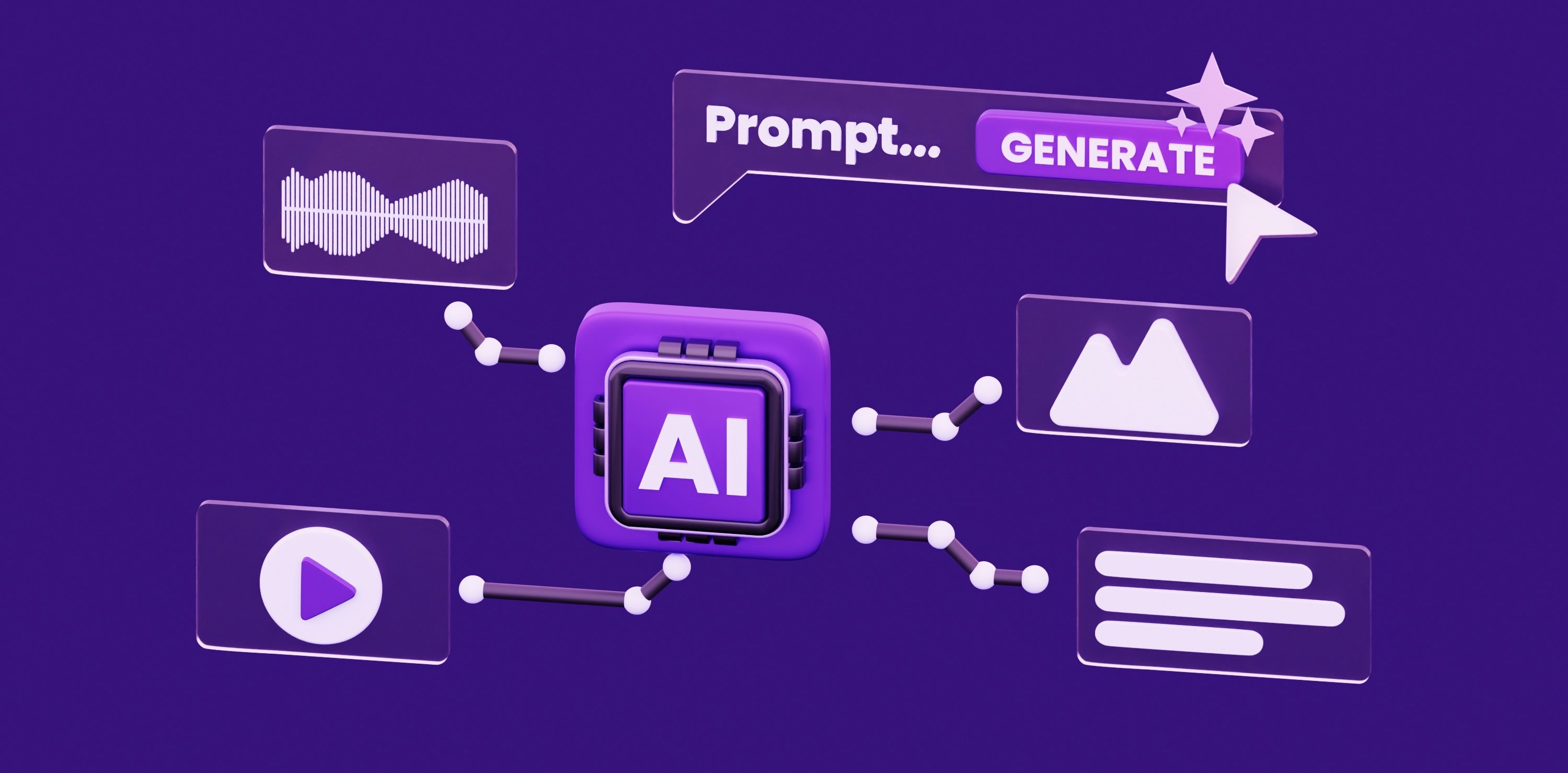
We’re excited to hear your project.
Let’s collaborate!

SEO is undergoing a seismic transformation. If you think writing great content and building low-quality backlinks is enough, you're in for a wake-up call. The rise of AI-powered tools like ChatGPT and Google’s AI overviews is changing the search landscape. SEO moves past optimizing for Google and towards being discoverable across platforms where users are searching. In this article, we’ll explore the top SEO trends for 2025 and how you can stay ahead of the curve.

The rise of AI-driven search tools like ChatGPT and Google’s AI overviews has introduced the concept of Generative Engine Optimization.
Tim Cameron-Kitchen of Exposure Ninja calls this shift "the biggest change in search since 2006." GEO involves optimizing content to be featured in AI-generated answers.
AI tools rely on natural language processing (NLP) to understand and compile results. Nathan Gotch emphasizes, “To drive visibility in generative engines, brands must leverage NLP and create content tailored to AI-driven searches.”
Top Tip: Use AI analytics tools to identify content gaps and track which keywords perform best in generative search environments.
Nathan Gotch warns, "Google is taking clicks away from websites through AI overviews, excessive ads, and SERP features." According to a study by SimilarWeb, organic traffic dropped by 17% across industries in 2023, and this decline is expected to continue.
Despite this, Google remains the best source of organic traffic compared to platforms like LinkedIn or X, where algorithms suppress posts with outbound links.
To mitigate reduced organic clicks, focus on branded search. Moz reports a strong correlation between branded searches and high-ranking websites, with websites that have a strong brand presence 2.5x more likely to survive algorithm updates.
Top Tip: Monitor click-through rates via Google Search Console and invest in branded content campaigns to drive more direct traffic.
You might also like What Healthcare Websites Must Prioritize in 2025
SEO in 2025 requires two distinct strategies:
Cameron-Kitchen explains, “AI search tools are changing user behavior. Customers might spend their research time talking to ChatGPT or Google AI overviews instead of visiting your website.” Businesses must ensure their brand is visible during both ToFu and BoFu searches.
Top Tip: Create dedicated content clusters for ToFu and BoFu queries to capture users at every stage of the journey.
Natural language processing is critical for SEO success in generative engines and beyond. Gotch shares, “I use NLP to optimize blog content and repurpose it into scripts for YouTube. This strategy not only boosts search visibility but ensures content resonates across platforms.”
Top Tip: Use tools like Rankability or Clearscope to optimize content for NLP, ensuring alignment with AI-generated results.
Google and AI systems prioritize content that demonstrates Experience, Expertise, Authoritativeness, and Trustworthiness (E-E-A-T). Gotch emphasizes, “Website and brand authority will remain critical for long-term SEO success.”
Top Tip: Showcase industry-specific expertise with unique content, such as research studies or expert interviews, to stand out in competitive niches.
For the first time, Google faces competition from tools like Perplexity and Search GPT. Gotch advises, "SEO practitioners must optimize for any search engine—not just Google."
Top Tip: Analyze the source websites cited by AI tools and aim to secure mentions on those platforms.
AI is also reshaping content management.
Drupal now integrates OpenAI’s ChatGPT and DALL-E, powerful tools built to streamline your content creation.
Using ChatGPT with Drupal’s CKEditor, creators can:
No fuss, all within Drupal’s interface.
Then there’s DALL-E integration, transforming text into visuals, effortlessly creating custom images without design skills.
These AI-powered Drupal tools free you up to focus on strategy, creativity, and quality, elevating content across the board.
You might also like Everything you need to know about Drupal CMS 1.0
AI tools often pull data from reputable third-party websites rather than the brand’s own site. Cameron-Kitchen stresses the importance of digital PR: “Businesses need to ensure their products and services are mentioned consistently and positively across influential platforms.”
According to Edelman’s Trust Barometer, 88% of consumers trust recommendations from third-party content more than direct brand communications.
Top Tip: Build partnerships with industry leaders and influencers to ensure your brand is featured on high-authority websites.
Local SEO will evolve as AI tools expand into geographic-specific searches. Meanwhile, visual SEO will gain traction, with image-rich results dominating certain queries.
Top Tip: Optimize your Google Business Profile with accurate location data, reviews, and high-quality images to capture local and visual search traffic.

While voice search adoption has grown, Gotch notes it still accounts for primarily informational queries. However, as devices improve their NLP capabilities, voice search will likely expand into more complex searches.
According to PwC, 71% of users prefer voice search for convenience, but visual search still dominates decision-making.
Top Tip: Optimize for conversational keywords and FAQs to capture emerging voice search traffic while focusing on visual content for higher-value queries.
SEO in 2025 will be defined by generative AI, reduced organic clicks, and the need for dual strategies that cater to both research and transactional intent.
As Nathan Gotch reminds us, "SEO isn’t about Google—it’s about optimizing for any platform where users search." By embracing GEO, leveraging NLP, and focusing on E-E-A-T, businesses can stay ahead in this rapidly evolving landscape.
Start preparing today to secure your competitive edge in the ever-changing world of SEO.

We’re excited to hear your project.
Let’s collaborate!